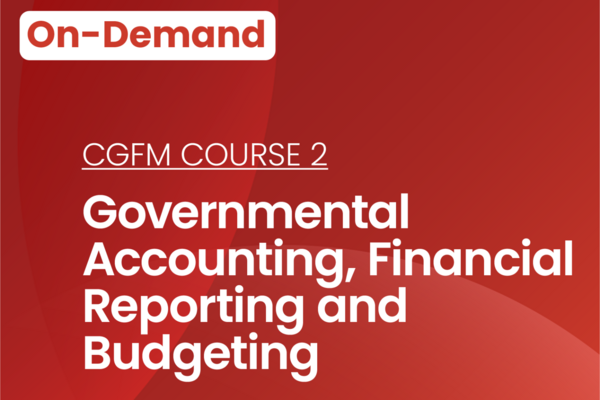
This course covers the seven sections of AGA's CGFM study guide 1, Governmental Environment. Format: This course consists of: videos of an instructor (Virginia Kinakin) teaching the CGFM course content; and corresponding study guide content. Access: Online access is required to view this course, and content may NOT be printed or downloaded. Access to this course will expire 120 days from the date of purchase. Please review the Terms & Conditions prior to purchase. Read more

This course covers the three sections of AGA's CGFM study guide 2, Governmental Accounting, Financial Reporting and Budgeting. Format: This course consists of: videos of an instructor (Mark Mitchell) teaching the CGFM course content; and corresponding study guide content. Access: Online access is required to view this course, and content may NOT be printed or downloaded. Access to this course will expire 120 days from the date of purchase. Please review the Terms & Conditions prior to purchase. Read more

This course covers the five sections of AGA's CGFM study guide 3, Governmental Financial Management and Control. Format: This course consists of: videos of an instructor (John Hummel) teaching the CGFM course content; and corresponding study guide content. Access: Online access is required to view this course, and content may NOT be printed or downloaded. Access to this course will expire 120 days from the date of purchase. Please review the Terms & Conditions prior to purchase. Read more
Shopping Cart
Your cart is empty
